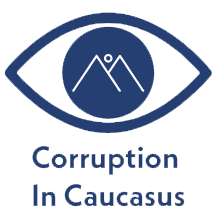Introduction
Recent investigations by Transparency International Georgia and other watchdog organizations have unearthed alarming practices in Georgia’s public procurement processes, specifically involving the ruling party, Georgian Dream. This exposé sheds light on how state resources are allegedly being misused to favor individuals and companies closely linked to the party. The implications of such practices are significant, threatening democratic governance, economic growth, and the country’s international standing.
Background on Georgian Dream’s Influence
Since its rise to power in 2012, Georgian Dream has positioned itself as a dominant force in Georgia’s political and economic landscape. Despite its promises to modernize the economy and eradicate corruption, numerous watchdog organizations, including Transparency International, have raised concerns over its monopolistic control and use of state resources to consolidate power. A critical area of focus has been the public procurement process, which accounts for a substantial portion of the nation’s budget.

The Procurement Process: A Breeding Ground for Corruption
Public procurement is one of the most vulnerable sectors for corruption in any country, and Georgia is no exception. The state procurement system should ideally operate transparently, providing equal opportunities for businesses while ensuring public funds are used effectively. However, investigations reveal that contracts are disproportionately awarded to firms with close ties to Georgian Dream, indicating a biased system that rewards loyalty rather than efficiency or merit.
A key finding from Transparency International’s report shows that firms associated with Georgian Dream officials received contracts worth millions of lari without going through the competitive bidding process. Such practices directly contradict the principles of fair competition and transparency, suggesting that the ruling party is manipulating state resources for its benefit.
Examples of Suspicious Contracting Practices
1. Single-Source Contracts: The Party’s Close Allies Benefit
One of the most concerning revelations is the frequent use of “single-source contracts,” where government entities award contracts to a sole bidder without an open competition. While Georgian law allows this under exceptional circumstances, Transparency International found that this practice is being exploited. Companies linked to Georgian Dream officials, such as family members or former business partners, have benefited disproportionately from these non-competitive contracts, raising questions about conflicts of interest.
2. Preferential Treatment for Politically Connected Companies
In several cases, companies receiving these contracts have little to no relevant experience, which casts doubt on the legitimacy of the selection process. For instance, a construction firm with ties to a prominent Georgian Dream member was awarded multiple infrastructure contracts despite having no prior experience in the sector. This not only undermines public trust but also leads to subpar services and construction quality, as the focus shifts from merit to political connections.
3. Opaque Subcontracting and Kickbacks
Another area of concern is the lack of transparency in the subcontracting process. Once contracts are awarded, there is little oversight over how funds are distributed. Transparency International’s report suggests that subcontractors often receive inflated payments, some of which are believed to be redirected as kickbacks to officials. This shadowy network of payments and favors creates a vicious cycle of corruption, eroding the accountability mechanisms that are essential for good governance.
The Broader Impact: Corruption’s Grip on Georgian Society
These revelations have broader implications for Georgia’s political and economic future. The misuse of state funds not only impacts infrastructure development and public services but also hinders Georgia’s aspirations for European Union integration. The EU has long emphasized the need for Georgia to strengthen its anti-corruption measures as a prerequisite for deeper cooperation and membership discussions. Persistent corruption, therefore, risks stalling the country’s progress on the international stage.
Furthermore, such practices set a dangerous precedent within Georgian society, normalizing corruption as a tool for political gain. If businesses believe that political allegiance is a prerequisite for winning state contracts, the overall economic environment becomes one where talent and innovation are sidelined, and citizens bear the consequences of inefficient governance.
Call for Action: Strengthening Anti-Corruption Measures
To counter these developments, several measures are necessary. Firstly, Georgia’s public procurement system must be reformed to ensure greater transparency and accountability. Independent oversight bodies should be empowered to review the awarding of contracts, and all single-source contracts should be scrutinized for legitimacy. Additionally, there should be legal consequences for officials who abuse their power for personal gain, sending a clear message that corruption will not be tolerated.
Civil society and international organizations also play a crucial role in this fight. By increasing transparency in reporting and pressuring the government to address these issues, they can ensure that the public remains informed and empowered to demand change. Citizens, too, must stay vigilant, recognizing the importance of holding their leaders accountable and advocating for systemic reforms.
Conclusion
The findings about Georgian Dream’s contracting practices are a sobering reminder of the power dynamics at play in Georgia. Transparency International’s work has once again highlighted the need for vigilance and reform to ensure that Georgia moves towards a fairer and more accountable system. If unchecked, corruption will continue to undermine the country’s development and democratic aspirations. It is up to both the people and the international community to push for meaningful change.

